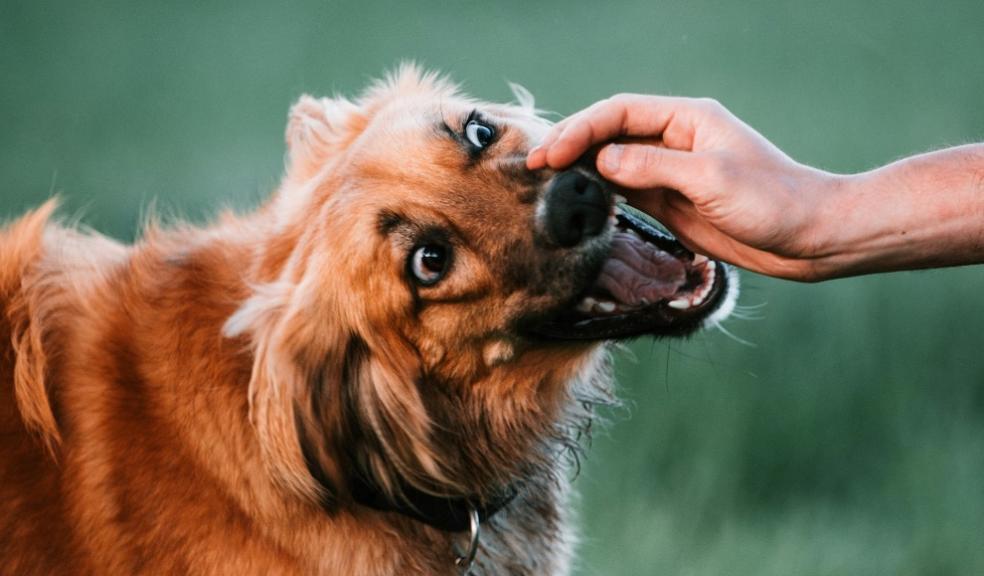
Dog Bite Claims in the UK: Your Complete Guide to Claiming Compensation
Most dogs in the UK are gentle, loyal companions. However, even the friendliest dog can react unpredictably if startled, frightened, or provoked. A single bite can cause serious physical injuries and lasting emotional distress.
If you or someone close to you has been bitten by a dog, you may have the right to seek compensation. Dog bite claims are designed to help victims recover their financial losses, medical expenses, and the emotional harm caused by such attacks.
This guide explains everything you need to know about making a dog bite claim from your legal rights and the claims process to typical compensation amounts and common questions.
Understanding Dog Bite Claims
Dog bites can happen anywhere: in parks, at work, on pavements, or even inside someone’s home. Many cases involve dogs that have never bitten before. What matters is not the dog’s history, but whether the owner or person responsible failed to control it properly.
Under the Dangerous Dogs Act 1991, it is a criminal offence for a dog to be dangerously out of control in any public or private space. If a dog injures someone because its handler did not take reasonable precautions, that person can be held legally liable for the harm caused.
Victims are entitled to bring a civil claim for compensation to recover both physical and psychological damages.
Why Victims Make Dog Bite Claims
Dog bite injuries can affect almost every part of life. A bite can result in visible scarring, nerve damage, infection, and sometimes the need for reconstructive surgery. But the effects aren’t only physical. Many victims also experience nightmares, anxiety, or fear of going outdoors after the attack.
By claiming compensation, victims can:
- Recover costs of medical treatment, therapy, and medication.
- Replace lost earnings during recovery.
- Receive financial support for ongoing care or rehabilitation.
- Gain recognition for the pain and trauma they have suffered.
Compensation is not just about money it’s about regaining control after an incident that should never have happened.
Who Can Claim Compensation?
Anyone who suffers injury from a dog bite caused by someone else’s negligence or failure to control a dog may be able to claim. You do not need to prove that the dog was known to be dangerous, only that the owner or person in charge failed to prevent the attack.
You may be eligible to claim if:
- You were bitten by a dog off its lead in a public place.
- You were attacked while working — for example, as a postal worker or delivery driver.
- You were bitten on private property, such as when visiting a friend or customer.
- You were injured because the dog escaped through an unsecured gate or fence.
Even if the owner insists the dog has “never done this before”, that does not remove their legal responsibility. The law requires all dogs to be kept under proper control at all times.
Common Dog Bite Injuries
Dog bite injuries vary widely depending on the circumstances. Some wounds heal quickly, while others leave long-lasting effects. Typical injuries include:
- Puncture wounds and lacerations
- Soft tissue damage and nerve injury
- Broken or fractured bones
- Permanent scarring or disfigurement
- Infections such as tetanus or cellulitis
- Psychological trauma, including post-traumatic stress disorder (PTSD)
Even a seemingly minor bite should be checked by a medical professional. Some infections may develop later, and early treatment is crucial for both your health and your claim.
What To Do After A Dog Bite
If you have been bitten, taking the right steps immediately afterwards can help protect both your health and your potential claim.
- Get medical help right away. Visit your GP or A&E for proper treatment and to have the injury recorded in your medical notes.
- Report the incident. Contact the police or local council’s dog warden. An official record strengthens your claim and helps prevent further attacks.
- Collect evidence. Take clear photographs of your injuries, the location, and, if possible, the dog itself.
- Gather contact details. Ask for the dog owner’s name, address, and insurance information. If witnesses were present, take their details too.
- Keep receipts and records. Save any documentation relating to medical treatment, travel costs, or loss of earnings.
This information will be vital when your solicitor prepares your claim.
How Compensation Is Calculated
The amount of compensation awarded in dog bite claims depends on several factors, including the severity of the injury, recovery time, and any long-term effects.
Compensation is usually divided into two categories:
1. General Damages
These cover pain, suffering, and loss of enjoyment of life. They take into account both physical and psychological injuries.
2. Special Damages
These cover the financial losses caused by the attack, such as:
- Medical expenses and prescriptions
- Lost wages
- Future loss of income if you cannot return to work
- Costs of counselling or therapy
- Travel expenses for treatment
Dog Bite Claims Involving Children
Children are especially vulnerable to dog bites, often suffering injuries to the face or hands. Because they may not understand how to avoid dogs, the responsibility falls entirely on the owner or handler.
A parent or guardian can bring a claim on a child’s behalf as their litigation friend. Any compensation awarded is normally held in a court-approved trust until the child turns eighteen, ensuring the money is protected for their future needs.
Time limits work differently for children the three-year deadline for bringing a claim begins on their eighteenth birthday.
Can You Claim If The Bite Happened At Work?
Yes. If a dog bite occurred while you were carrying out your job, you could be eligible for compensation under your employer’s duty of care.
Employers must take reasonable steps to protect employees from foreseeable risks. This duty is set out under the Health and Safety at Work etc. Act 1974.
You may have a valid claim if:
- You were attacked by a dog while delivering post or parcels.
- You were visiting a client’s home or property as part of your job.
- You were working near guard dogs or animals kept on site without proper safety measures.
In such cases, your compensation is usually paid through your employer’s insurance policy rather than from the employer personally.
Who Pays The Compensation?
In most dog bite cases, compensation is paid by an insurer rather than the individual owner. Depending on the circumstances, this could include:
- The dog owner’s pet or home insurance
- Employer’s liability insurance
- Public liability insurance
- The Criminal Injuries Compensation Authority (CICA) if the dog was deliberately used as a weapon and no insurance applies
Your solicitor will identify the most appropriate route for your claim. They will handle all communication with the insurer or CICA, allowing you to focus on your recovery.
The Dog Bite Claims Process
The process of claiming compensation typically involves several straightforward steps:
- Initial consultation: You’ll discuss what happened, and your solicitor will assess whether you have a strong case.
- No Win No Fee agreement: Most solicitors handle dog bite claims under this arrangement, meaning you pay nothing unless your claim succeeds.
- Evidence gathering: Medical records, photos, witness statements, and expert opinions are collected to support your claim.
- Negotiation: Your solicitor negotiates with the insurer to reach a fair settlement.
- Court proceedings (if necessary): Only a small percentage of cases go to court, but your solicitor will represent you if required.
Throughout, your solicitor will keep you informed and work to secure the best possible outcome.
How Long Do You Have To Claim?
Generally, you have three years from the date of the bite to begin your claim. There are exceptions:
- For children, the three-year limit starts from their eighteenth birthday.
- For those lacking mental capacity, the time limit is paused until capacity is regained.
Starting your claim sooner helps preserve evidence and gives your solicitor the best chance of achieving a strong settlement.
Common Misunderstandings About Dog Bite Claims
Dog bite compensation is sometimes misunderstood. Here are a few myths worth clearing up:
- “I can’t claim because the dog has never bitten before.” – You still can. Owners must always keep dogs under control.
- “It was only a small bite, so it’s not worth claiming.” – Even minor bites can lead to infection, scarring, or trauma — all valid reasons for compensation.
- “I’ll have to go to court.” – Most claims are settled without going to court.
- “It’ll ruin my friendship if I claim.” – Compensation is paid by insurance, not directly from the owner’s pocket.
Understanding these points can help you make an informed decision about whether to pursue a claim.
Why Use A Solicitor?
Dog bite compensation claims can be complex. A skilled solicitor will make the process easier by handling the legal details and ensuring your claim is valued correctly. They can:
- Explain your rights clearly
- Collect and present evidence
- Liaise with the insurer on your behalf
- Negotiate the best possible settlement
- Represent you in court if needed
With a No Win No Fee arrangement, you only pay if your case succeeds, so there’s no financial risk to starting your claim, contact with the advice.co.uk they one of best no win no fee solicitors based in United Kingdom.
Dog Bites And Personal Injury Law
Dog bite cases fall under the wider area of personal injury compensation. This area of law deals with injuries caused by someone else’s negligence — whether in a workplace, public area, or private property.
To succeed in a personal injury claim, you must show that:
- The defendant owed you a duty of care.
- They breached that duty.
- You suffered injury as a result.
The same principles apply to dog bite claims. Proving negligence, supported by medical and witness evidence, is key to a successful outcome.
A dog bite can be both painful and traumatic, often leaving scars that go beyond the surface. But if someone else was at fault, you shouldn’t have to bear the cost of their negligence.
Through dog bite claims, victims can secure compensation to cover their treatment, lost income, and emotional suffering helping them to move forward with confidence.
If you’ve been attacked or injured by a dog in the UK, it’s worth speaking to a solicitor as soon as possible. At advice.co.uk, our team of friendly advisors are here to answer any questions you may have about making a claim. Specialising in many different areas, you could be connected with one of the expert No Win No Fee solicitors on our panel for free legal advice.







